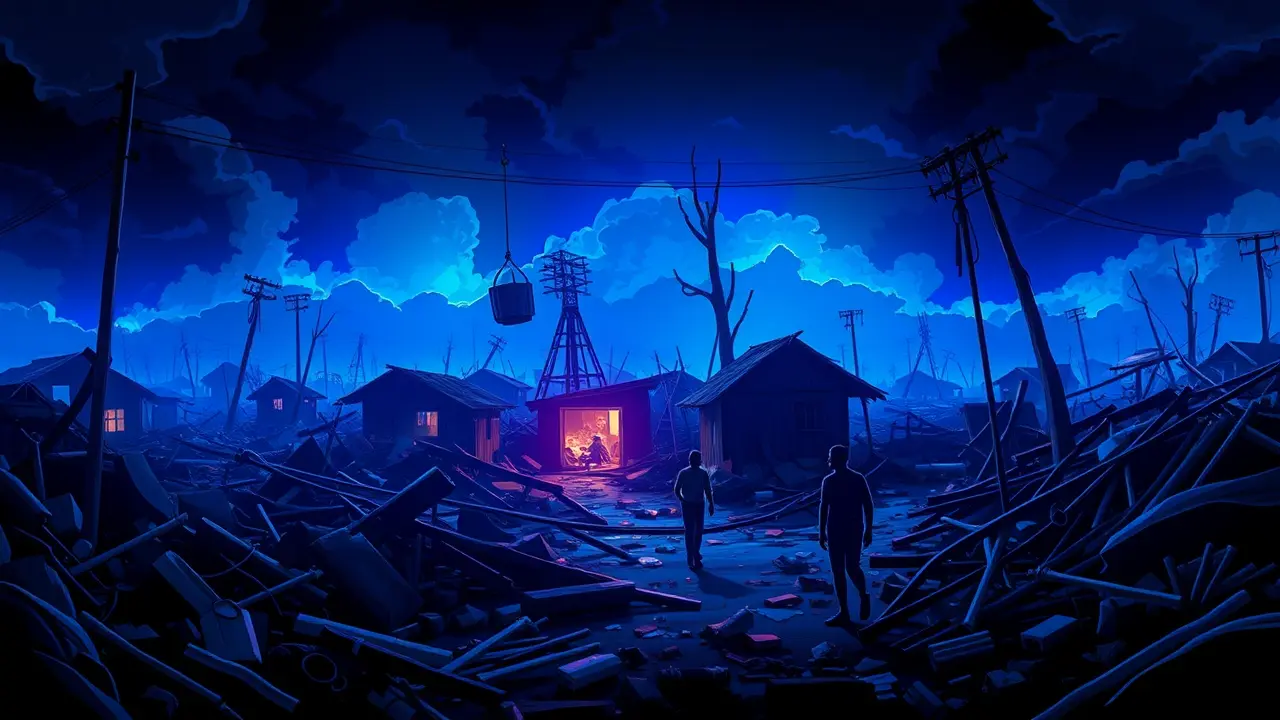
Otheraccidents & disastersSearch and Rescue
Hurricane Aftermath Sparks Desperation and Scavenging in Jamaica.
EM
Emma Wilson
2 days ago7 min read
The familiar, haunting rhythm of catastrophe has returned to Jamaica, this time with a particularly brutal cadence in the parish of St. Elizabeth, where the town of Black River now exists as a stark tableau of human desperation.In the wake of the hurricane's fury, which stripped buildings to their skeletons and turned roads into treacherous rivers of mud, a new, more insidious crisis has taken root—a profound and devastating aid vacuum. Residents, their voices strained with a mixture of exhaustion and defiance, report to the BBC a reality that should be unthinkable in a modern disaster response: they have seen no organized aid, no convoys of hope, no government or NGO presence delivering the life-sustaining basics of water, food, and medical supplies.This isn't merely inconvenience; it is a fight for survival, a raw, primal struggle that has forced communities to revert to scavenging. The social contract, so easily assumed in times of peace, has been shredded by the winds, replaced by a desperate calculus of need.People are now picking through the wreckage of their own neighbors' homes, not out of malice, but out of the simple, terrifying imperative to find a can of food, a bottle of clean water, or a piece of usable timber for shelter. This descent into scavenging is a chilling indicator of systemic failure, a red flag that the official emergency mechanisms have either broken down entirely or were never adequately positioned to respond to a crisis of this magnitude in the first place.The psychological toll is immense; the trauma of the storm itself is now compounded by the profound anxiety of abandonment, a feeling that the outside world has simply moved on, leaving them to fend for themselves in a landscape of ruin. Historically, the Caribbean has borne the brunt of increasingly intense hurricane seasons, a direct consequence of climate change, yet the regional preparedness and international response often seem perennially caught off-guard, trapped in a cycle of reaction rather than proactive reinforcement.Experts in disaster management point to the critical 72-hour 'golden window' post-impact, a period now evidently missed in Black River, where the delay exponentially increases risks of waterborne diseases, malnutrition, and civil unrest. The situation echoes painful precedents, from the delayed response to Hurricane Maria in Puerto Rico to the logistical nightmares following the 2010 Haiti earthquake, where aid distribution bottlenecks cost countless lives.The consequences of this failure in Jamaica will ripple far beyond the immediate hunger and thirst; it erodes trust in institutions, seeds long-term community grievances, and paints a grim picture of what may await other vulnerable coastal communities as the climate crisis escalates. For the people of Black River, the storm was only the beginning; the true test is now this agonizing wait, a battle against time and bureaucratic inertia, where survival has become a solitary, scavenger's pursuit.
#hurricane
#Jamaica
#disaster relief
#food shortage
#Black River
#desperation
#survival
#featured
Stay Informed. Act Smarter.
Get weekly highlights, major headlines, and expert insights — then put your knowledge to work in our live prediction markets.
Comments
It’s quiet here...Start the conversation by leaving the first comment.
© 2025 Outpoll Service LTD. All rights reserved.